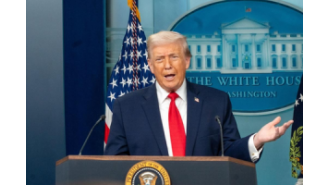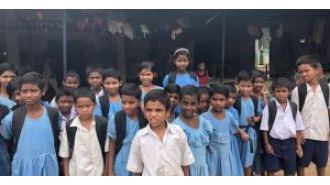Rwandan leader blames world for not stopping genocide during 30th anniversary ceremony.
Kagame blames international community for prolonging horrors of 1994 Rwandan Genocide during 30-year anniversary commemoration.

On the 30-year anniversary of the start of the Rwandan Genocide in 1994, Rwandan President Paul Kagame delivered a powerful speech, placing blame on the international community for their inaction during the horrific events that unfolded. The genocide began after the death of then-Rwandan President Juvénal Habyarimana, a Hutu, whose plane was shot down over Kigali. The Tutsis were falsely accused of his death, leading to a brutal campaign of violence against them. In addition to targeting Tutsis, extremists also targeted moderate Hutus who tried to protect their fellow citizens. This 100-day period of killing resulted in an unimaginable loss of approximately 800,000 lives.
The commemoration ceremony, which was attended by world leaders such as former U.S. President Bill Clinton and Israel's President Issac Herzog, was reported by the Associated Press. During his speech, President Kagame boldly stated, "It was the international community that failed us, whether it was out of contempt or cowardice." He continued, acknowledging the long and difficult journey that the country has been through, but also highlighting the tremendous progress that has been made in rebuilding Rwanda. He credited this progress to the collective decision made by the people to resurrect their nation.
Even former President Clinton admitted to his failure in addressing the Rwandan Genocide during his time in office, calling it one of the greatest failures of his tenure. French President Emmanuel Macron also acknowledged the inaction of France and its allies, admitting that there was a lack of political will to intervene. An analysis by Foreign Policy magazine also places blame on the United States, France, and the UN for their inadequate response to the crisis.
Bronwen Everill, a lecturer in history at the University of Cambridge, pointed out that the UN's mandate limited their ability to take action and prevent the killings. This failure to expand their peacekeeping efforts was a major contributing factor to the devastating loss of life.
President Kagame, who is credited with leading the rebels that ultimately ended the genocide, has faced accusations of creating a climate of fear and suppressing dissent. Human rights groups have accused him of forcing political opponents to flee or disappear, and some have even been killed. In a column for Al-Jazeera, Tafi Mhaka argues that Kagame cannot be considered a pioneer or an inspirational leader until these human rights violations are addressed and dissenting voices are no longer silenced.
The recent release of "Hotel Rwanda" hero, Paul Rusesabagina, from a Rwandan jail has shed light on the ongoing political tensions in the country. While the international community must take responsibility for their inaction during the genocide, it is also crucial to hold leaders like Kagame accountable for any abuses of power. As Mhaka states, "Rwanda and Africa deserve much better."










